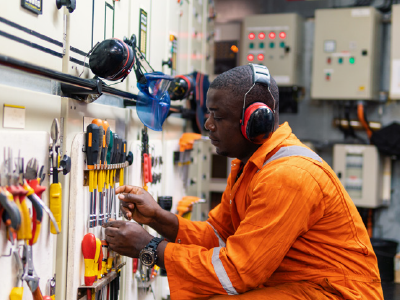WIDER Annual Lecture 22
The political economy of structural transformation
Has democracy failed African economies?
The 2018 WIDER Annual Lecture was given by Professor Ernest Aryeetey. He discussed the political economy of structural transformation in Africa and the lecture looked at how various political regimes and economic policies have shaped the African development trajectory, and what are the necessary next steps for achieving economic transformation.
Most African nations have been independent for more than six decades. In that period, they have tried different types of political regimes and economic policies—all intended to hasten the pace of economic development and the associated structural transformation. They have seen authoritarian regimes with less open economies, as indeed they have also come to embrace democracy and more open economic systems. Growing dissatisfaction with the outcomes of recent recent experiments with national economies, including unemployment and rising inequality, have tended to undermine confidence, and have led to questions about democratic institutions and structural transformation.
 Does democracy lead to the right economic choices in Africa? Why cannot governments devote more resources to structural reforms? What incentives do governments have for pursuing structural reform over electoral cycles?
Does democracy lead to the right economic choices in Africa? Why cannot governments devote more resources to structural reforms? What incentives do governments have for pursuing structural reform over electoral cycles?
This lecture will argue that because structural reforms, such as modernization of agriculture and industrialization, are more difficult to conceptualize and market to an impatient populace, they seldom take place.
As a result, macroeconomic and other policy reforms, including financial sector reforms and new social policies, do not achieve their full impact and begin to lose effectiveness. When economic policies are perceived to be self-serving, they lead to episodic experiences of growth, poverty reduction, and inequality, at worst.
This lecture concludes that African nations have no choice but to go back to basics, relying on new technologies to pursue structural transformation.
 Join the network
Join the network